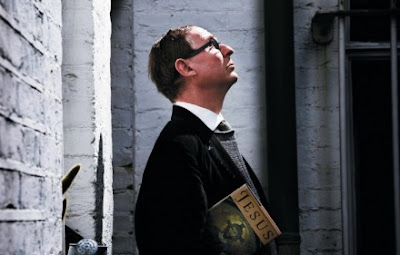'Tis the Majority
In this, as All, prevail –
Assent, and you are sane –
Demur, you’re straightway dangerous –
And handled with a Chain –
Emily Dickinson
I am currently reading Michael Savage's book
Banned in Britain: Beating the Liberal Blacklist. Among his numerous insights is that liberalism has undergone a subtle shift from the 1960s. "I remember the 1960s" he writes,
when true liberals used to say, "I may disagree with you but I would fight to the death your right to say it." When have you last heard a liberal say, "Oh I may disagree with conservative talk radio, but I would fight to the death their right to say what they believe in"? I don't hear that anymore. What instead I hear is, "I think it's time to pass a standard...to bring accountability to the airwaves." That was stated earlier this year by left wing Democrats in the U.S. House of Representatives. Is that liberalism?

While contemporary liberals still like to imagine themselves operating within the ideological legacy framed by such men as Hume, Locke, Diderot, Voltaire, Tocqueville, Mill and Burke, the totalitarian utopia towards which they strive and the Mccarthyism by which they would drive us there, is the antithesis to the genuine liberal values espoused by the 18th and 19th century defenders of freedom. If contemporary liberalism is marked by any defining feature, it is a dogmatic intolerance to dissent that I have elsewhere described by invoking the category of '
thought police.'
A parallel shift can be seen in the notion of tolerance. Tolerance used to be was understood as allowing or permitting another person’s viewpoint or values in spite of how one personally felt. Though this notion of tolerance, like any type of liberty, has obvious legal limits, it was based on the Biblical idea (not always perfectly followed by Christian societies, I should add) that we should refrain from deporting, imprisoning, executing or humiliating those whose beliefs, practices and behaviors are inferior to one’s own. Tolerance in this sense did not suggest an acceptance of that which was being tolerated, but connoted the idea of allowing something in spite of how one actually felt about it, as embodied in the quotation falsely attributed to Voltaire, “I disapprove of what you say, but I will defend to the death your right to say it.” Around the middle of the last century, however, tolerance gradually ceased to be understood in the original sense as permitting that which one did not personally accept. Instead, it began to mean actually accepting ideas, values and practices that differed from one’s own. Whereas under the old notion of tolerance someone had to disagree with someone in order to tolerate, allow or put up with the different viewpoint, the new meaning of tolerance does not allow for such disagreement; rather, it asserts that a person must actually accept all values and viewpoint as being equally legitimate (the obvious exception is that we are not supposed to tolerate the older notion of tolerance, since the older notion assumed what is now an allegedly intolerant antithesis.)
This paradigm shift in the notion of tolerance and liberalism have had far reaching implications for Christians. Since it is now an act of intolerance to call anything wrong or immoral, Christians who hold to the Biblical standards, or even generic conservative views, are constantly finding themselves accused of intolerance and lumped together with terrorists, murderers and rapists. In their defense they can no longer appeal to the values of classical liberalism since the left has abandoned its historical roots and embraced a revolutionary mentality that is antithetic to the classic defense of liberty.
It is a strange world that we live in.
Further Reading
The Retreat of Reason: Political Correctness and the Corruption of Public Debate
-------------------
Read my columns at the Charles Colson Center
Read my writings at Alfred the Great Society
To join my mailing list, send a blank email to robin (at sign) atgsociety.com with “Blog Me” in the subject heading.
Click Here to friend-request me on Facebook and get news feeds every time new articles are added to this blog.
Click Here to follow me on Twitter.





